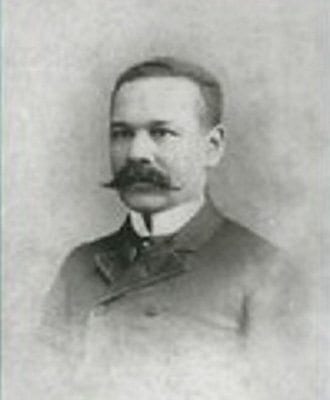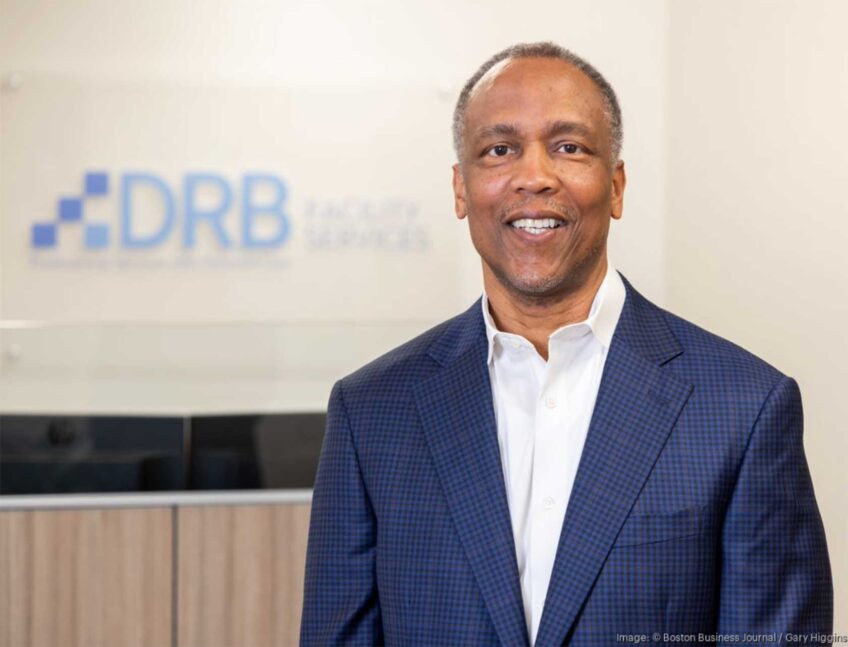Robert H. Carter: pioneering black pharmacist, entrepreneur- Black History

Robert H. Carter is believed to be the first African American certified pharmacist in Massachusetts. During the period from 1876 to 1907 he owned drugstores in New Bedford and Boston. Back then drugstores did not have a huge inventory of prefabricated drugs as are available today at CVS, Rite Aid or Walgreens. Pharmacists had to be able to formulate medications for doctors’ prescriptions.
Carter was born in New Bedford on Jan. 12, 1847, the second of three children. His parents Sarah (Taylor) Carter and Robert H. Carter Sr. were free Virginians, but they decided to improve their lot in 1846 by moving to New Bedford from Alexandria, Va. — a major port and market in the slave trade. Carter’s parents were able to find work in New Bedford, his mother as a seamstress and his father as a baker.
Only a year and a half after settling into their new home at 26 Chancery St. with Carter’s older sister Ann Elizabeth, his father died of cholera, leaving the child’s mother and uncle, Richard Carter, to raise him.
Robert Carter attended New Bedford High School, where he was one of only 10 enrolled African American students. As a teenager, he worked as a drugstore delivery boy for New Bedford pharmacist William P. S. Cadwell. One cold winter afternoon after school, he was shoveling snow in front of Cadwell’s Drugstore, at 49 Purchase St., when, to his surprise, he found a wallet containing $400 — a large sum of money in those days. Instead of keeping the cash and remaining mum about his new discovery, he turned the wallet over to his employer. His boss knew the wallet’s owner, George Howland Jr., the first president of the New Bedford Five Cents Savings Bank, and returned it to him.
Cadwell made note of Carter’s honesty, and when the teenager graduated from New Bedford High School in 1866, he rewarded him with a two-year apprenticeship in pharmacy. Carter immediately began his pharmaceutical career under Cadwell’s tutelage. He was paid $2.00 a week for the first six months, $2.50 a week for the next six months, and $4.00 a week for the last 12 months. At that time, pharmacists themselves manually composed or compounded all drugs. Carter diligently studied a textbook on the compounding of medicines and mastered his trade by the age of 21.
On July 8, 1869, he married Parthenia M. Harris, a 20-year-old hairdresser from Norfolk, Va. Their wedding ceremony was performed by Reverend Richard Vaughn at the Second Baptist Church in New Bedford. Parthenia gave birth to six children: Robert Lindsey, on May 4, 1871; Estelle May, on Dec. 15, 1873; Charles, on Oct. 15, 1875; George Thomas, on Feb. 19, 1878; Caroline, on Sept. 17, 1881, and Parthenia, on Oct. 30, 1885.
The couple’s first child, Robert Lindsey Carter, became a physician and practiced in Boston briefly. In 1901, he maintained an office at the Music Hall Building, while residing at 329 Columbus Ave. in the South End.
Robert H. Carter worked for William Cadwell through the year 1872. The following year, E. H. Chisholm employed him as a pharmacist. During this period, Carter and his family lived at 66 Purchase St., where his wife, Parthenia, ran a successful hair care business.
In 1876, the Carters moved to 135 Purchase St. There, the pharmacist established his first drugstore. In an advertisement he placed in the New Bedford Evening Standard Times on Nov. 11 that year, Carter vowed to give his “personal attention to the compounding of physicians’ prescriptions.” He assured potential customers, “All medicines dispensed can be relied upon, both for quality and the accuracy with which they are prepared.” Carter added, “With close application to my business and a careful interest to the wants of my customers, I shall strive to gain for my store a first-class reputation. A share of the public patronage is respectfully solicited.”
The Massachusetts Board of Registry in Pharmacy was established in 1885. Carter had at least three consecutive years of practical experience as a pharmacist by then, qualifying him for board certification without the requirement of taking an examination. Consequently, the board certified him as a registered pharmacist on Jan. 5, 1886, making him, undoubtedly, the first African American certified pharmacist in Massachusetts. According to the 1880 U.S. Census, there were only 18,697 African Americans in Massachusetts.
Carter owned a drugstore in New Bedford for 20 years — the first 13 years on Purchase St., then seven on Kempton St. Between 1896 and 1897, he ventured out to the Boston area, and became active in community affairs. He attended a reception and banquet at Odd Fellows Hall in Cambridgeport on Jan. 21, 1897 in honor of attorney Clement G. Morgan after he became the first African American elected to the Cambridge Board of Aldermen. The 1898 directory for Cambridge listed Robert H. Carter as a druggist, doing business at 111 Harvard St.
By that time, the Carter family had moved to 393 Northampton St. in Roxbury. Around 1901 the pharmacist established an apothecary, Robert H. Carter & Co., at 1443 Tremont St. in Roxbury. His company remained in business until about 1905. Carter and his family had returned to his hometown by 1906, as that year’s New Bedford directory listed him as a “drug clerk” conducting business at 1 Pleasant St.
Carter kept a notebook or “formulary” containing 119 of his handwritten entries for compounding medicines, potions, insect and animal poisons, and various household substances. Included in those entries are compounds for toothache drops, cough syrup, pain killers, bug and moth poison, rat poison, and silver and brass polish.
Carter was a founding member of the Massachusetts Pharmaceutical Association, as well as a member of the Boston Druggist Association and Booker T. Washington’s National Negro Business League. A Mason of the Prince Hall Grand Lodge, he became a Junior Grand Warden of the brotherhood in December 1895. He was also an Odd Fellow and a member of the Knights of Pythias.
Carter died of tuberculosis at his home, at 71 Foster St., on Jan. 13, 1908. He is buried at Oak Grove Cemetery in New Bedford.






